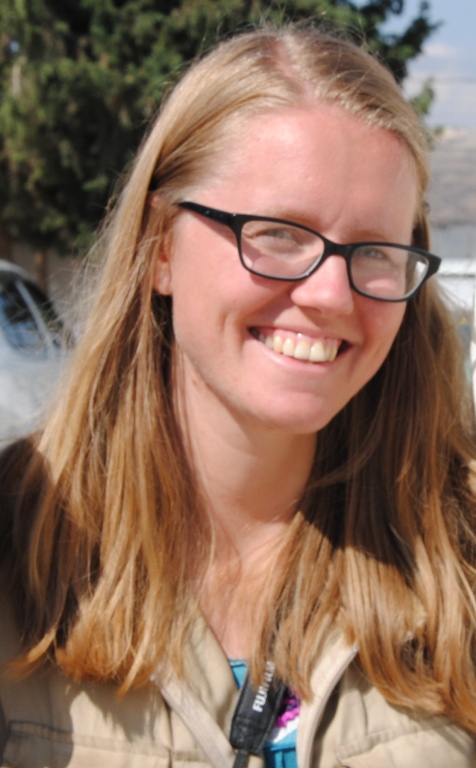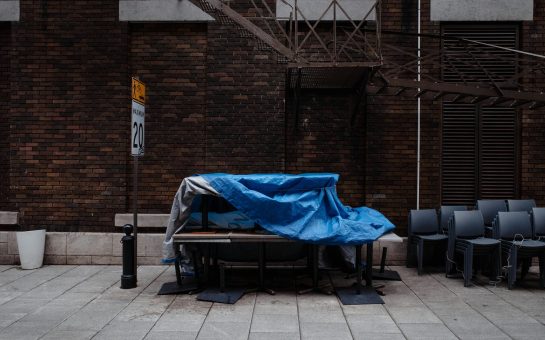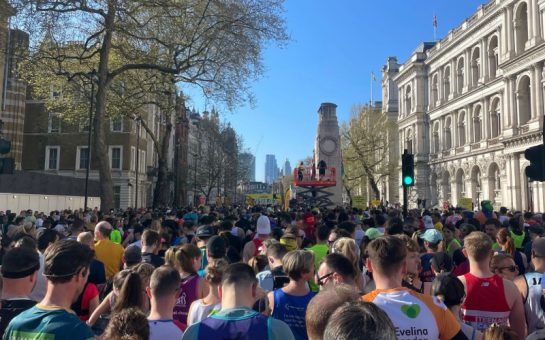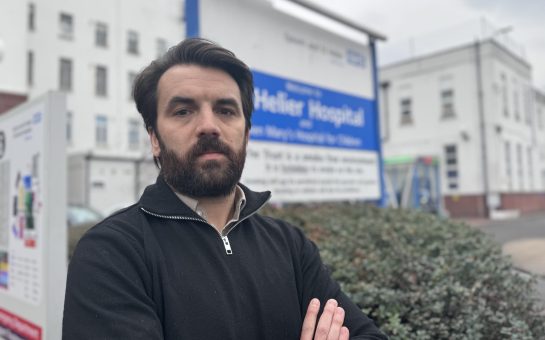“I don’t cry very often, but I’ve cried a lot since I got back from the West Bank, when I realised things that happened,” human rights monitor Nikki Ray told SW Londoner.
Nikki was the youngest member of a Quaker-funded team sent to the Israeli-occupied West Bank last August to monitor life and access to education for Palestinians living in the troubled region.
“One of the Palestinian boys allegedly threw a stone at a soldier outside his school – acts like this are the only resistance the children feel they have against the Israeli regime,” she said.
“One night the 15-year-old was blindfolded and put in the back of a jeep and did not return for a few days.”
The human rights graduate will be presenting a series of talks on her time there, starting in her home of New Malden next week.
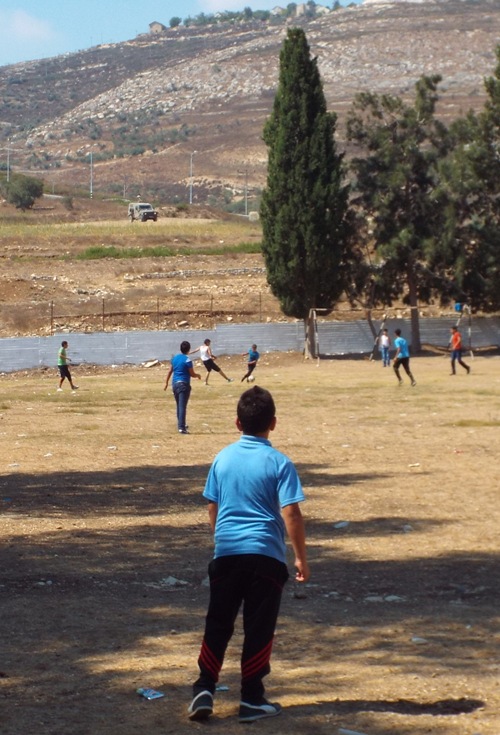
WEST BANK: Palestinian schoolboys playing football watched by army jeep
While others might have been intimidated by living in a Palestinian village surrounded by ‘ominous’ Israeli watch towers, Ms Ray talked about these events as if they were a normal routine for any 25-year-old.
Fuelled by the desire to practically build upon her degree, she joined the Ecumenical Accompaniment Programme in Palestine and Israel (EAPPI) which monitors seven placements in the West Bank.
The EAPPI is coordinated by the World Council of Churches to bring internationals observers to witness life under occupation and report human rights abuses.
Nikki was sent to the village of Yanoun for three months and quickly immersed herself in life among the 85 Palestinians, whose main source of livelihood in the village was agriculture.
Her task was documenting, blogging, and photographing the tension between Palestinians and Israeli police and settlers in the area.
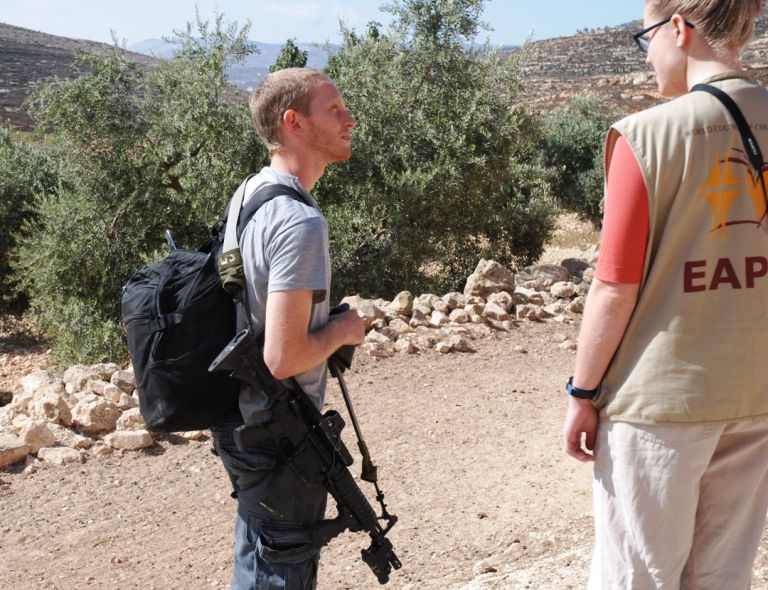 SETTLERS: An Israeli settler enters the Palestinian village of Yanoun
SETTLERS: An Israeli settler enters the Palestinian village of Yanoun
Despite being surrounded by armed Israeli military on her daily village patrols, she was made to feel comfortable by the hospitality shown by her Palestinian hosts.
She described, however, one of the most distressing situations she witnessed when an explosion, allegedly set off by the Israelis, killed an 18-year-old Palestinian boy and left his 10-year-old brother seriously injured.
The younger boy became violent as a result of the bombing and no longer wanted to attend school, while his father admitted contemplating suicide.
The family wanted to make a court case against the Israeli Army, with the help of legal aid, but it was doubtful how successful this would be.
“Even if you can’t prevent these things from happening, you can document them,” Nikki said of her place in the community.
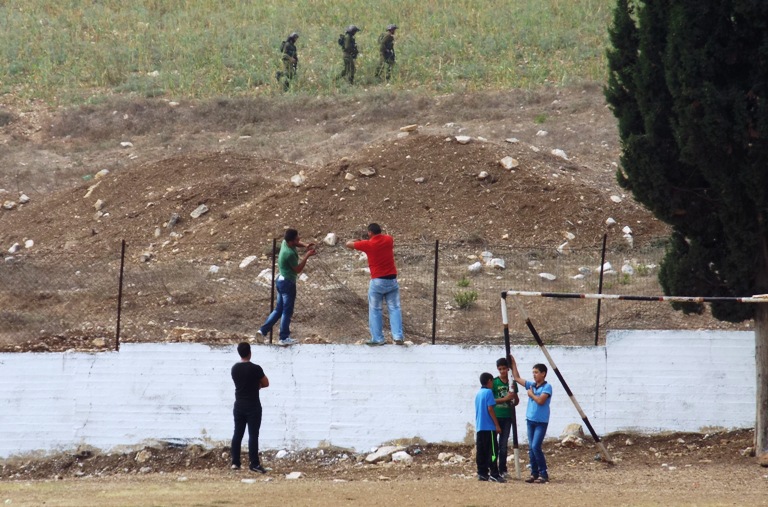 OCCUPATION: Mending Burin School fence while Israeli army patrols above
OCCUPATION: Mending Burin School fence while Israeli army patrols above
Photographs and reports she obtained were sent to the UN and international agencies in the hope of advocacy.
The passion the masters graduate had for the programme, coordinated by the Quakers Peace and Social Witness, was evident by it being nearly impossible to squeeze a question in through her stories.
On her reports about the access to education, she said the tension felt by Palestinian schoolchildren on the edge of villages was exacerbated by the presence of Israeli military who regularly patrolled outside schools.
“The children’s education is really affected by this,” she stressed.
Her report on the tensions in the West Bank was particularly poignant as the European Parliamentary vote in December saw 498 against 88 lawmakers voting in favour of recognising a state of Palestine separate to Israel.
She said she felt the vote was an important step for Palestinians to live peacefully in the West Bank.
Nikki will be conducting a series of talks based on her experiences, starting with at New Malden Methodist Church on Tuesday January 13, 2015.
